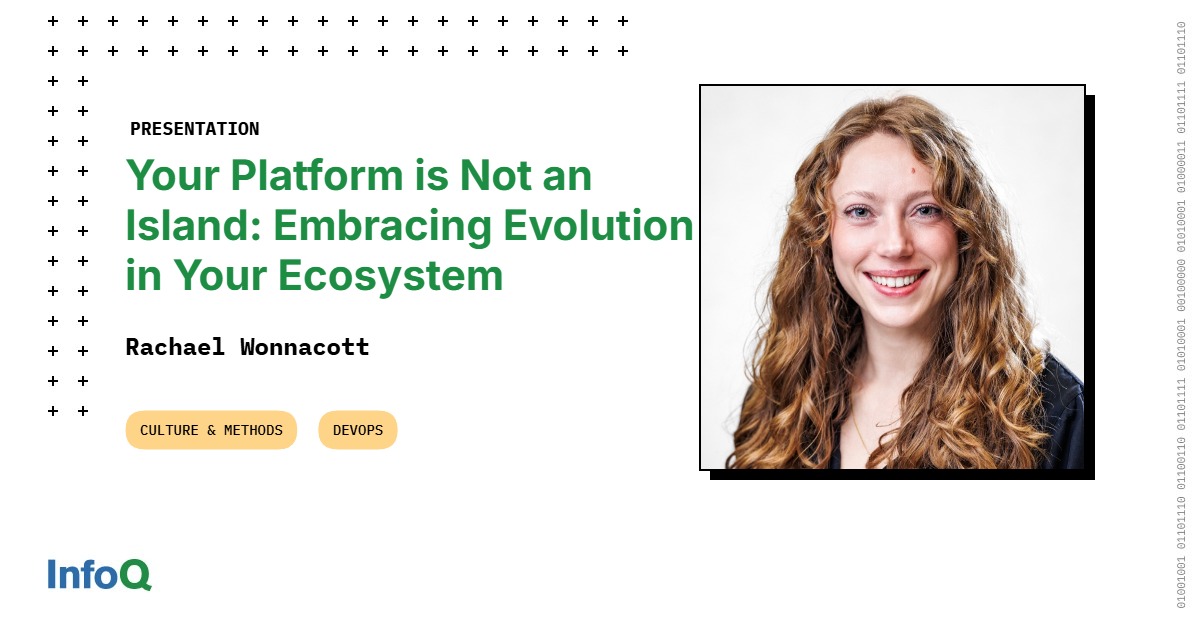
"Back in the day, though, I spent 10 years as a hands-on platform engineer, but uniquely, despite the fact that platform engineering as a term only really became popular within the last 3 to 5 years, I've always been engaged with platforms, all the way back since 2013. What that's given me across my career is a unique perspective for how all the different methodologies we've used, with particular reference to DevOps, have ultimately led us towards what we know as platform engineering today."
"Drawing on my firsthand experience of leading strategic platform initiatives, specifically within the enterprise, I want to share how platform design is only successful when you take into account three things. That's organizational maturity, organizational structure, and your culture. This talk is going to explore how to balance the tradeoffs between technical experience, developer productivity, and measurable business impact, recognizing that it's rare that one size will fit all."
Platform engineering should be treated as a mechanism to deliver measurable business value rather than an end focused solely on developer experience. Successful platform design requires alignment with organizational maturity, organizational structure, and culture. Balancing tradeoffs between technical experience, developer productivity, and measurable business impact is essential because a single approach rarely fits all teams. Practical enterprise experience shows that historical DevOps and platform practices evolved toward current platform engineering approaches. Fidelity International operates across 27 countries, was founded in 1969, and manages over £950 billion for individuals and institutions.
Read at InfoQ
Unable to calculate read time
Collection
[
|
...
]